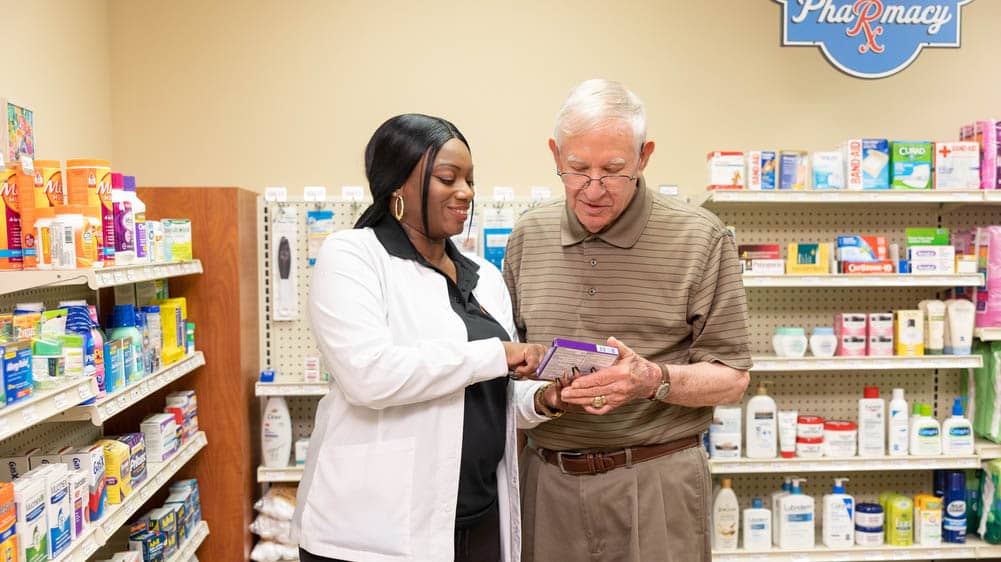

Rx on a Budget: Smart Seniors’ Guide to Finding Affordable Prescription Drugs
A senior’s well-being comes down to a myriad of things. These can be as simple as life experiences and lifestyle choices, or be driven primarily by genetics. Adding to the mix is the extent to which folks utilize physicians and healthy habits, their access to health care practices, and how closely they follow preventive and healing regimens. Then there is the question of affordability for everything from examinations and tests to surgeries and prescription drugs. Perhaps the biggest health care concern for most seniors is keeping their prescription drug costs down, even as pharmaceutical prices keep rising. Just because a treatment or medication is recommended does not mean it is affordable.
Senior Prescription Drugs: The Landscape
Older adults account for a disproportionate amount of the pharmaceuticals prescribed and used in America each year. Some argue that medications are overprescribed for seniors, but that is a topic for another time. The point is that most older Americans are on one or more prescribed medications at any given time. The number can increase with certain conditions and following surgeries. Depending on the specific drug and its availability, the cost for a 30-day supply can be exorbitant, especially for seniors on fixed incomes or when they are uninsured.
To help you keep your prescription drug costs down and still get the medications you need, here are some tips and usable resources:
1. Be Your Own Best Advocate
America’s fragmented health care system means everyone is on their own when it comes to finding the best deals on their medications. Instead of a single source or program to guide your search for answers and savings, there are many. In lieu of a universal health care system that makes treatments, including medications, equally available and priced across the board, experts say it’s vital that seniors be their own best advocates. In the case of seniors who cannot be stewards of their own health care, family caregivers and loved ones must step up to do the right thing for those in their charge.
2. Ask for Generics
It may take a little digging, but discounted medications can be had—it’s just a matter of where to look and whom to ask. Generally speaking, generic drugs cost less than their brand-name equivalents. Start by asking your physician or pharmacist if any medication you are prescribed is available in generic form. When your doctor writes a prescription, insist they check the box that allows the pharmacy to substitute a generic.
3. Bulking Up
Because getting a prescription in bulk is often cheaper, insist your physician write a 90-day supply prescription for any medication they prescribe you. Discounted bulk orders usually apply whether filling your prescription via a mail-order pharmacy or in-store savings program through a pharmacy at Walmart or a chain such as CVS or Walgreens.
Mail-order pharmacies can offer savings, but be aware that delivery may take days. Therefore, if you need a same-day or pressing prescription filled, mail order may not be advisable.
4. Ask Your Insurer
Check with your insurer for a list of generics it covers. Most insurance plans come with a discount pharmacy card that can be used at participating pharmacies within their network. Call the number on the back of your insurance card to find a pharmacy near you. Seniors enrolled in Medicare can be confident that prescription medications are covered in most Medicare Advantage plans. If not, there are always Medicare Part D supplemental plans, though consumers should be aware that drugs are added and deleted each year, and sometimes the cost of medications can greatly increase.
5. Discounted Medication Programs and Clubs
There are various prescription programs that offer discounted medications. There are manufacturer discount programs, pharmacy-specific savings plans, and prescription discount cards. Some can’t be combined with insurance, and you may be required to give them your contact information and receive marketing emails, calls and texts as a result. Your best bet is to explore these programs to see if any are a good fit for your situation and compare costs and ease of use:
- Prescription card programs include GoodRx and GoodRx Gold, FamilyWize, SingleCare, Blink Health, and ScriptSave WellRx.
- Pharmacy-specific savings plans are offered by many nationwide pharmacies. These include both retail and mail-order pharmacies such as Walgreens Prescription Savings Club, Kroger Health Savings Club, and Walmart. Cost Plus Drugs is a mail-order pharmacy that uses a transparent method of pricing, which is the wholesale price it pays for the medicine plus a fixed 15% markup, pharmacy fee, and shipping charge. Depending on the drug, the price could be less than what you would pay using your insurance at a typical pharmacy.
- Many drug manufacturers offer discount programs and coupons that cover brand-name drugs. Often, these coupons can be combined with insurance to lower your copayment. Check the drug company’s website to determine if any coupons are offered for your medication.
6. Your Neighborhood Independent Pharmacy
It’s worth doing comparison price shopping with your neighborhood independent pharmacy to see if it can meet or beat prescription costs from large chain or online pharmacies. It always pays to ask. Ask your pharmacist to locate patient assistance programs through their databases or by contacting drug companies directly.
7. Low-Income and Other Assistance Programs
Low-income seniors may qualify for drug company assistance programs that offer brand-name drugs at a savings, or maybe even for free. In some cases, uninsured applicants may qualify. Hospital or health clinic social workers may also be able to pinpoint assistance programs that can help with medication costs, along with manufacturer savings programs for certain chronic conditions.
Discovering and applying for discount programs can be daunting, which is where NeedyMeds comes in. The service provides free assistance with not only identifying these programs but also completing applications to access them.
RxAssist is a searchable drug database where you can review individual drug prices by pharmacy. Your physician can search for pharmaceutical representatives in your area who offer coupons or samples. Physicians can also search for drug safety net programs that make discounted medications available to low-income or uninsured consumers.
8. Ask Your Physician
Ask your physician about samples of brand-name drugs they may approve or recommend you try on a trial basis. It’s worth inquiring about, especially if you know your insurance will not cover the brand, or even if you are unsure whether you will be on it going forward. You wouldn’t want to pay for a 30-day supply only to find out you need to switch to a different medication after a week. Drug manufacturer representatives visit physician offices regularly with samples they can use, and you may be able to get a sample pack to start with before paying for a prescription to be filled.
9. Paid Prescription Savings Programs
Paid prescription savings programs are another option to consider. They vary, and whether or not one will work for you is based on what you’re willing to pay and what they offer in terms of convenience and personal preference. The Rx Advocates is a fee-based service that helps consumers apply for patient assistance programs. The service works with you and your doctor to prepare the application, files it with each pharmaceutical company, and does follow-up. Once approved, the service handles your medication protocol, including managing refills.
Do Your Research
It is imperative that you do your research and understand the fine print on these offers. Verywell Health offers a list of the best prescription drug discount card programs and compares them for you, including the pros and cons of each. Keep in mind:
- Not every pharmacy will accept every discount card or program. Make sure to consult your pharmacist to determine what the pharmacy accepts.
- Make sure the company you use is HIPAA compliant in order to protect your personal health information.
- Find out if there is a membership fee, and if so, you may opt to find a free program instead.
How Right at Home Can Help
Right at Home offers a wide range of in-home care services, including promoting healthy living and well-being through daily health reminders. Our trained and insured/bonded caregivers can ensure your loved one takes their medications as prescribed and follows the doctor’s orders. Our caregivers also monitor and report any changes in the condition of your loved one to ensure the little issues don’t become big ones. To find out more, use our office locator to contact the office nearest you.







